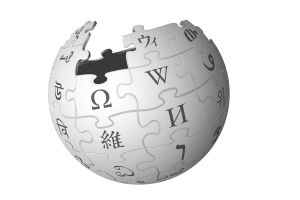The Digital Core: Notes Toward a Proposal
TL;DR: A proposal for a digital core learning community that uses Wikipedia to teach composition, critical thinking, and participation in a digital age. |

In these days of fake news precipitated by ethically-questionable social media platforms, multi-national corporations, and media conglomerates, the need for a more critical and literate citizenry has never been more paramount. A healthy democracy cannot be maintained when dubious and false reports masquerade as true and valid information on which we base real-life decisions. The need for digital natives who are fluent in discerning fact from fiction, truth from spin, scientific consensus from ideology has never been more necessary.
I propose a multi-class curriculum—potentially a learning community—that teaches composition, research, critical thinking, and informed participation in the digital age. This approach would use Wikipedia—arguably the most successful and well-known project of its kind—and its core content policies as the foundation for teaching these important literacies in higher education and democratic citizenship.
While the essay remains at the center of higher-ed assessment and is arguably still a valid medium for student compositional practice, we do our students a disservice by continuing to emphasize a paper-age medium in a digital age. Many of my upper-level students in new media have lamented that my use of Wikipedia (and other social media) is their first exposure to these platforms in college. Since these media have, in effect, replaced and eliminated paper, do we not owe it to our students to educate them in using—both consuming and producing—these media in critical and creative ways? I have discussed this idea in greater detail elsewhere, so I will not rehash it here.
Wikipedia’s core content policies—neutral point of view (NPOV), verifiability (V), and no original research (NOR)—emphasize critical skills in foundational college writing, knowledge production, and participation. Wikipedia’s policy of open editing allows anyone to participate and encourages those participants to take responsibility for their contributions. In addition, these core content policies emphasize rigorous research, synthesis, and support using the strongest sources that are systematically documented and organized into logical articles. Finally, neutrality promotes an objective approach that considers nuance, detail, and the sober evaluation and presentation of source materials while teaching students how to synthesize these materials into coherent articles.
I could see a learning community over the first two-years of study, encompassing four core-curriculum courses: like ENGL 1101, ENGL 1102, a sophomore literature survey, and a history or political science class. Subject matter would obviously be emphasized, but the research and writing components would use Wikipedia and allow the students a multi-semester opportunity to hone their digital composition skills in the same environment.
. . .
